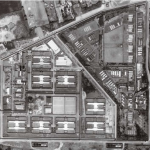Legacy.
There are many legacies to the troubles some of which are unsolvable and some of which are regrettable. Some people in the country do not want to remember what went on and some cant forget. For anybody deeply affected by the troubles it is a nightmare that never leaves. I have mixed views on the legacy.
The troubles have affected me and my family until I die. However I am writing about one legacy that will affect a few people but affect them deeply. And it is contentious. I want to look at the Historical Enquires Team in a historical context.
It was decided by those in power, that there would be an official effort to look at unsolved killings during the troubles. I have had the opportunity to read one report on a friend of mine who was killed by the Provos. It was a thorough report but told me absolutely nothing new about what happened to my friend. There had already been 3 convictions. I was left with the sense it was an exercise by the state to say look we are doing something. Even if that something was costly, futile and pointless.
Given the political horse trading that was going on after the end of the troubles it was inevitable that one card played by the unionists was that we want to know who were the republicans that had done the damage to our people. This sort of pre-empts a Truth Commission as happened in South Africa. But what I was thinking was; had happened before in this country in previous conflict periods? And more so is this a criminal justice matter or is it politics playing in the area?
And finally does the HET underpin the idea that the troubles, the killings, by all factions, were in essence political?
I suppose the period to begin with is the Easter rising in April 1916. This happened under British rule and during a time of war. The leaders Connolly, Pearse, etc, were taken out and shot dead in Kilmainham. Others were detained and taken to Frongoch in Wales. The rising would have been a flop only that the executions angered so many people that a rebellion took place and British rule in the 26 counties ended in 1921. What happened the prisoners of the rising? They were all let home. The British state did not try the criminalisation tactic of the recent troubles and so they could easily justify the releases. Given the huge differences between now and then can you imagine, in say 1924, the British Government asking for a senior Irish government figure to be arrested for a killing say in 1916 and brought to a British court? Of course not.
Then we had the outbreak of the Second World war. The IRA came to take advantage of the situation to find, ironically, that their greatest enemy was the Irish government. Not only where they interned down south and north but the Irish government seen fit to execute the IRA chief of staff Charlie Kerins! He was accused of machine gunning a special branch garda at his home. After the war it was release for those involved. This also happened in the North and from an entrenched Unionist government!
Then came the 1950s and another campaign, this time on the border. Nearly as many IRA men as RUC men were killed. Many were interned, some sentenced and held in the Crumlin Road prison. The campaign died and was officially ended in 1962 (only 7 years from the 1969 watershed point.) Again no historical enquiry set up to find out who done what. Amazingly the Unionist government again said release the IRA men.
So the advent of HET sees a surprising departure from previous post conflict situations. And who does this serve? Well principally the Unionist population who suffered at the hands of the IRA and other republicans. But essentially then, it is a political gesture rather than a criminal justice response which is part of the peace process. In reality has the HET helped any of us? I don’t know but it certainly highlights the major problems and difficulties in dealing with our recent violent past.
themisto






